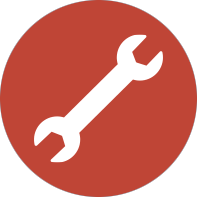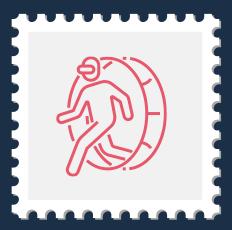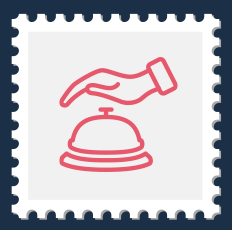Applications
| Category | Applications |
| Engineering and Design | - Spacecraft and Rover Design: Design and build models of spacecraft and rovers for space exploration. - Telescope Construction: Build and calibrate telescopes for astronomical observation using principles of optics. - Robotic Systems: Develop and program robotic systems for applications in space and automation. |
| Programming and Software Development | - Simulations and Modeling: Create simulations of space missions and astronomical phenomena using programming skills. - Game Development: Design and develop educational and simulation games with space themes. |
| Scientific Research and Analysis | - Data Analysis: Analyze astronomical data from telescopes and space missions, including spectral data and observational statistics. - Experimentation: Conduct experiments related to space phenomena, such as lunar crater impacts or solar energy collection. |
| Creative Arts and Communication | - Educational Content Creation: Develop space-themed models, posters, and presentations to communicate space concepts. - Visual Arts: Create visual representations of space phenomena, such as constellations and planetary surfaces. |
| Environmental and Sustainability Initiatives | - Space Debris Management: Contribute to solutions for managing space debris and ensuring sustainability. - Solar Energy Projects: Design solar-powered devices and implement solar energy technologies for Earth and space applications. |
| Virtual and Augmented Reality | - Educational VR/AR Applications: Develop and use VR/AR applications for immersive space exploration experiences. |
| Astronomy and Space Exploration | - Stargazing and Observation: Use telescopes and observational skills for studying celestial objects and amateur astronomy. - Space Mission Planning: Contribute to planning and simulating space missions using knowledge of orbital mechanics and mission design. |
| Community and Education | - STEM Outreach Programs: Lead or participate in STEM outreach programs teaching space science and technology to younger students. - Science Fair Projects: Develop and present space-related projects at science fairs and competitions. |
Career Opportunities
| Career Path | Description | Career Pathway | Universities Offering Undergraduate Programs |
| Astrophysicist | Conduct research on celestial bodies and their properties. | - Obtain a degree in Astrophysics, Physics, or Astronomy. - Pursue a master's and Ph.D. in Astrophysics. | - California Institute of Technology (Caltech) - Harvard University - University of Cambridge - University of California, Berkeley |
| Spacecraft Engineer | Design and develop spacecraft for various missions. | - Earn a degree in Aerospace Engineering or Mechanical Engineering. - Gain experience through internships and projects. - Consider a master's degree. | - Massachusetts Institute of Technology (MIT) - Stanford University - Georgia Institute of Technology - Imperial College London |
| Astronomer | Study celestial phenomena and analyze astronomical data. | - Obtain a degree in Astronomy, Physics, or a related field. - Pursue a master's and Ph.D. in Astronomy. | - Princeton University - University of Arizona - University of Edinburgh - University of California, Los Angeles (UCLA) |
| Planetary Geologist | Explore planetary surfaces and analyze their composition. | - Study Geology or Planetary Science. - Pursue a master's and Ph.D. in Planetary Geology or a related field. | - University of Colorado Boulder - University of Arizona - Brown University - University of London |
| Space Mission Planner | Strategize and plan missions for space exploration. | - Obtain a degree in Aerospace Engineering, Physics, or a related field. - Gain experience in mission planning. | - University of Michigan - Purdue University - Massachusetts Institute of Technology (MIT) - University of Bristol |
| Satellite Technician | Maintain and repair satellites in orbit. | - Earn a degree in Electrical Engineering, Aerospace Engineering, or a related field. - Obtain relevant certifications. | - Embry-Riddle Aeronautical University - University of Surrey - California State University, Long Beach - Technical University of Munich |
| Observatory Manager | Oversee operations and research in observatories. | - Obtain a degree in Astronomy, Physics, or a related field. - Gain experience in observatory management. | - University of Hawaii - University of Arizona - University of Texas at Austin - University of Sheffield |
| Science Communicator | Translate complex concepts for public understanding. | - Study Communications, Science Journalism, or a related field. - Gain experience in science communication. | - University of California, Santa Cruz - University of Pennsylvania - University of Science and Technology of China - University of Sydney |
| Aerospace Technician | Assist in the assembly and maintenance of aerospace equipment. | - Obtain a degree in Aerospace Technology or Mechanical Engineering. - Gain hands-on experience and certifications. | - Embry-Riddle Aeronautical University - Purdue University - University of Michigan - Georgia Institute of Technology |
| Data Analyst (Space Science) | Analyze data from space missions for insights. | - Study Data Science, Statistics, or a related field. - Gain experience with space-related data analysis. | - University of California, Berkeley - University of Toronto - University of Edinburgh - University of Illinois at Urbana-Champaign |
| Astro-biologist | Study the potential for life beyond Earth in space and on other planets. | - Earn a degree in Biology, Chemistry, or Astrobiology. - Pursue a master's and Ph.D. in Astrobiology or a related field. | - University of Arizona - University of Edinburgh - University of California, Los Angeles (UCLA) - University of Rome La Sapienza |
| Telescope Operator | Manage and operate telescopes for astronomical observations. | - Obtain a degree in Astronomy, Physics, or Engineering. - Gain experience with telescope operations. | - University of Arizona - University of California, Santa Cruz - University of Texas at Austin - University of Hawaii |
| Remote Sensing Specialist | Interpret data collected by remote sensing devices in space. | - Study Remote Sensing, Geospatial Science, or a related field. - Gain experience with remote sensing technologies. | - University of Colorado Boulder - University of California, Los Angeles (UCLA) - University of Southampton - Technical University of Munich |
| Space Policy Analyst | Analyze and contribute to policies related to space exploration. | - Obtain a degree in Political Science, International Relations, or Space Policy. - Pursue further studies or relevant experience in space policy. | - George Washington University - University of Maryland - University of Space and Policy Studies (varies by country) - Johns Hopkins University |
| Space Systems Analyst | Assess and improve systems used in space missions. | - Study Systems Engineering, Aerospace Engineering, or a related field. - Gain experience in space systems analysis. | - University of California, San Diego - University of Michigan - Stanford University - Technical University of Delft |
| Astronomy Educator | Teach astronomy and space-related subjects. | - Obtain a degree in Education with a focus on Science or Astronomy. - Gain teaching experience and credentials. | - University of California, Berkeley - University of Texas at Austin - University of Edinburgh - California State University, Long Beach |
| Cosmologist | Study the origin, evolution, and eventual fate of the universe. | - Study Cosmology, Astrophysics, or Physics. - Pursue a master's and Ph.D. in Cosmology or a related field. | - Harvard University - University of Cambridge - Princeton University - California Institute of Technology (Caltech) |
| Space Tourism Guide | Work in the emerging field of space travel and tourism. | - Study Tourism Management, Space Science, or a related field. - Gain experience in space tourism and customer service. | - University of Nevada, Las Vegas - Embry-Riddle Aeronautical University - University of Central Florida - University of London |
| Satellite Communications Specialist | Manage communication systems for satellites. | - Obtain a degree in Telecommunications, Electrical Engineering, or a related field. - Gain experience in satellite communications. | - University of Surrey - University of California, Los Angeles (UCLA) - Georgia Institute of Technology - Imperial College London |
| Space Law Advisor | Specialize in legal aspects of space activities and policies. | - Study Law with a focus on Space Law or International Law. - Pursue further specialization in space law. | - University of London - George Washington University - International Institute of Air and Space Law (IIASL) - University of Texas at Austin |








